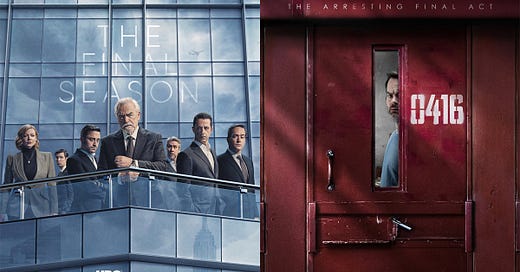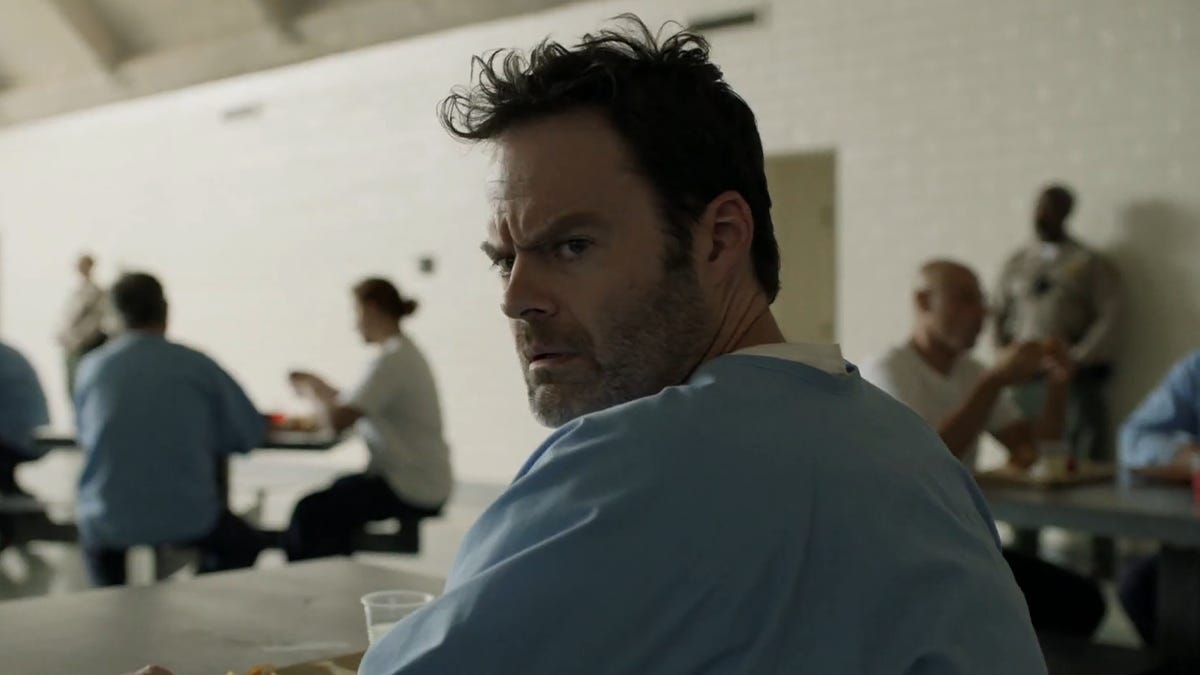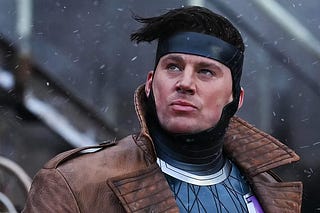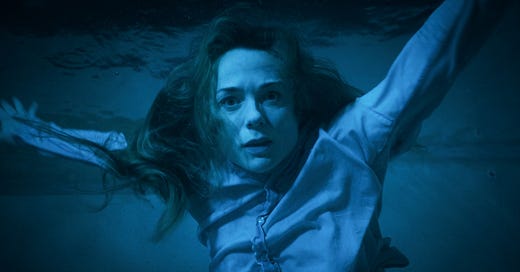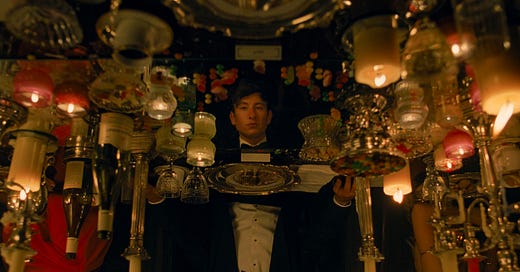
[Spoilers ahead for Succession and Barry]
We often take narrative arcs for granted. A major part of storytelling traditions throughout the eras is that the journey creates change. Character starts from Point A, things happen, and they’re a changed person by the time they arrive at Point B. If a character is the same person at the start of the journey as they were at the end, then that leads to the question if the story and journey were worth taking. The rise in anti-hero television featuring characters like Tony Soprano and Don Draper were a resounding success not by changing their main characters (Tony and Don are not better men by the end of the series), but by making their stagnation compelling through terrific drama, rich supporting casts, and bold decisions. They’re anti-hero shows not simply because Tony and Don are immoral guys, but also because they steadfastly refuse to change due to their narcissism and place in society.
Two weeks ago we saw the series finales of both Succession and Barry. After four seasons each, both HBO shows hung it up on the same night, and although for awards purposes they’re labeled as “drama” and “comedy,” respectively, the summation of both series showed them for what they were: tragedies. They were the stories of people who could never face the truth about themselves, burrowed further into their own delusions, and came to tragic conclusions. Like Tony and Don, they’re all immoral people, but Succession and Barry repeatedly offered their characters off-ramps. The arc of The Sopranos and Mad Men had different purposes and outcomes, but Succession and Barry were two shows about broken people who could not, for various reasons, take a better path.
As viewers, this should frustrate us. The magic trick of both shows is that we find them compelling.
“You Are Not Serious People”

Succession didn’t seem to fully grasp itself out the gate (my wife is doing a re-watch and reminded me that in the pilot episode Roman Roy has a wife and kid, who are never mentioned again), but it always knew that the central conflict was between patriarch and corporate titan Logan Roy (Brian Cox) and the three children from his second marriage—Kendall (Jeremy Strong), Shiv (Sarah Snook), and Roman (Kieran Culkin). While the show was titled “Succession” as a matter of “Who is going to take over the business and succeed Logan as CEO” it quickly took on a second meaning as sequence or lineage. In this case, it was a story of family abuse passed down. Logan got it at one point (the details being kept fuzzy up until his funeral in the penultimate episode) and then his kids received it, and they simply never learned to be functioning adults. As the show’s opening credits show, the Roy children are always play-acting at adulthood, but remain in a state of arrested development trying to please a father figure who may love them but only on his terms.
The challenge of Succession wasn’t about who would run Waystar-Royco. It was wondering if these awful people could move past their trauma to find a bond beyond the havoc their father created. Logan was always happy to pit his children against each other, and while there was never going to be an outcome where the Roy children leave their wealth and privilege behind, there was the possibility that they could stop letting their father dictate their lives. The show’s dramatic tension comes not from business dealings (although those are certainly fun to watch), but from seeing Kendall, Shiv, and Roman bounce off each other. Tellingly, the three siblings always seemed happiest away from their father’s world. It was a glimpse that there could have been hope for them outside of Logan’s toxic influence, but that’s the tragedy—there never really was much hope.
Season 4 begins with the Roy children looking like they’re about to strike out on their own. Their plan may be dumb (I doubt “The Hundred” would have been successful), but they’re doing the work together. They’re willing to fight back against their father and swipe the Pierce deal out from under him. But even here, the cracks quickly show as Roman is secretly still on Logan’s side. We’re allowed to hold out hope that after Logan’s death the kids might be able to come out from under the shadow of their abuser, but the remaining episodes show us the damage is done. They’re still asking, “What would have Dad done?” and lack the ability to think for themselves, know what they want, or get past their own egos. Logan, himself a ruined and craven individual, passed that damage onto his children without imparting any of his business savvy. They could only see him as a successful tyrant where the only way to make it in this world is to be cruel.
When the show ends with none of the Roy kids getting to be CEO, it doesn't feel like a twist; it feels inevitable. Of course Logan would still “win” by having the GoJo deal go through. Of course another toxic man is at the top of another major company (Madsen feels very much like the 21st century version of Logan where he’s still as venal, corrupt, and ruthless, but he doesn’t have to shout), the CEO is Tom (Matthew Macfadyen) as a hapless yes-man, and the Roy children have lost both their vaunted prize and each other. It was rich and funny journey to get there, but the show is back to where it started: the kids on the outside looking in. The only thing that could have possibly repaired some of the damage was leaning on each other, but because they’re children, they couldn’t see the bigger picture. Logan was a bastard, but he wasn't wrong when he told them they weren’t serious people.
Of course, who’s fault is that?
“Starting Now”
Like the Roy children deluding themselves into thinking they were capable of running a Fortune 500 Company, Barry was also a show about the lies we tell ourselves. The show seemed to start from a comic premise: “A hitman tries to make it as an actor! Wacky!” But even here, showrunners Bill Hader and Alec Berg upended expectations by going beyond the bounds of dark comedy to not tell a story about a mismatch (like the hitman/domestic normalcy of Grosse Pointe Blank), but one about people who need to lie to themselves in order to live. We all do that to some extent, but the lies of the central characters—Barry (Hader), Sally (Sarah Goldberg), Gene (Henry Winkler), Hank (Anthony Carrigan), and Fuches (Stephen Root)—are about trying to escape central truths of who they are.
Barry spent the entire series running from himself and leaving a lot of dead bodies in his wake. In an interview with Adam Chitwood over at The Wrap concerning the finale, Hader explained that Barry was like an addict with killing. He tried to get away from it in Season 1 only to repeatedly slip and kill both his friend Chris (Chris Marquette) and detective Janice Moss (Paula Newsome) when she discovered he was a murderer. He tries even harder to stay murder-free in Season 2 only to go on a bender at the finale and kill a bunch of gang members in a monastery. Season 3 is Barry accepting that he’s a killer, and Season 4 is when he’s “found religion,” but his solution is really to stay so far off the grid that he never interacts with anyone who would trigger him to start killing again…until news of Barry Berkman movie comes up and he feels like he has to kill Gene to stop the production.
As Hader points out, Barry in the final moments of his life realizes that the only way he could have moved forward in his life was to accept responsibility and go to jail for his crimes. Instead, he retreated into numerous fictions that denied who he really was. Furthermore, every time Barry touched that honesty, something would pull him back into fiction like in the Season 1 premiere when he tells a true story to Gene only for Gene to think it’s an acting monologue or in the Season 4 premiere when Barry purposely gets himself beaten to a pulp only to find that there’s a way to get out of prison through witness protection and reunite with Sally. Barry, like the Roy kids, can’t stop chasing his dream and he’s willing to lie to himself as much as possible to continue that pursuit.
Some say the show got too bleak in its final season, but I’d push back against that since I thought the show was not only funny (“Every day can be like Dave & Busters!”), but also the show had crossed the line as early as the seventh episode of the first season when Barry kills Chris because Chris threatens the new life Barry is trying to craft for himself. Chris isn’t a gangster or another hitman. He was Barry’s friend, and Barry killed him because he was a threat. That’s the show—how far will people go to keep the performance going? The point of great acting and great art is that, to paraphrase Picasso, it’s a lie that tells the truth. The main characters on Barry wanted lies that told a lie because the truth, for various reasons, was too painful to confront.
In the final episode, some of the characters are able to face that truth like Sally and Fuches while others, like Gene, Hank, and Barry, lose their lives to the lie. What makes the final scene so perfect where Barry’s son John (Jaeden Martell) watches the cheap cash-in movie about Barry is that John knows it’s a lie. He knows what went down at Hank’s. But it’s far more comforting to believe the lie—that his dad was a war hero manipulated by Gene to nefarious ends. In this way, John truly becomes his father’s son—accepting a pleasant lie because the truth is too complicated, dark, and painful.
Age of Stagnation
So why are these shows compelling if most characters simply end up where they started? What was the point of the journey? I’d argue that these shows work because they speak to American Malaise. Wages aren’t keeping pace with inflation, and the wealthiest people seem to suffer no consequences for making horrible decisions or being horrible people. Gun violence shows no signs of abating with other countries issuing warning to their own citizens to avoid the United States lest they be caught in a gun-related injury or homicide. While there are rapid changes in technological development, those developments now look like a mixed blessing or an outright scam perpetrated on a desperate populace who now feel like they’re going to have fewer opportunities than their parents.
Succession and Barry speak to this desperation. We relate to the Roys and Barry not because we’re sociopaths, but because despite the trappings of their scenarios, they’re characters on a hamster wheel. They keep pretending they’re going to get something they’ll never have because they can’t face the truth. The Roy kids will never get the loving father they needed, but maybe they can take over his company and prove they were worthy of that love. Barry will never wash the blood off his hands, but maybe if he can pretend to be anybody else, he can outrun the consequences of his actions. The difference between these characters and us is that (aside from their lack of a moral compass), they have clear off-ramps. They had moments where they could face the truth, painful as it may be, and maybe not get what they want, but what they needed. But like all great tragedies, their flaws were inescapable and eventually consumed them. The question remains if we as viewers are trapped in a similar tragedy of comforting lies at the expense of difficult truths.


